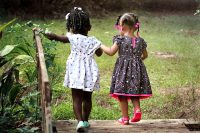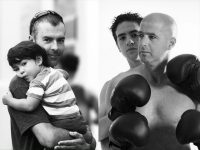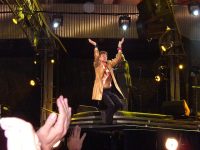Carrying knowledge…

Carrying knowledge into new fields. – Confucius (551? – 479B.C.): Lun Yü [The Analects (of Confucius)] / He that would know what shall be must consider what has been. More »

Carrying knowledge into new fields. – Confucius (551? – 479B.C.): Lun Yü [The Analects (of Confucius)] / He that would know what shall be must consider what has been. More »

温故知新。[故きを温ねて新しきを知る(ふるきをたずねてあたらしきをしる)。/故きを温めて新しきを知る。] – 孔子 (紀元前551? – 前479): 『論語』為政 / これからどうなるか知ろうと思う者は、これまでどうであったかをよく考えねばならない。 More »

Nature is a good mother. More »

親はなくとも子は育つ。(日本の諺) / 自然はよい母である。 More »

Any father whose son raises his hand against him is guilty of having produced a son who raised his hand against him. – Charles Péguy (1873 – 1914) More »

親に拳を振り上げる息子の父親は全員、親に拳を振り上げる息子に育ててしまったという罪がある。 – シャルル・ペギー (1873 – 1914) More »

You’re not the only one / with mixed emotions, // You’re not the only ship / adrift on this ocean. // – Mick Jagger (1943 – )/ Keith Richards (1943 – ) “The Rolling Stones”: Mixed Emotions More »

お前一人が/複雑な気持ちでいるわけじゃないし、//お前だけが/この海原に漂っているわけでもない。// – ミック・ジャガー (1943 – )/キース・リチャーズ (1943 – ) 「ローリング・ストーンズ」: 『ミックスト・エモーションズ』 More »
![IMAGE: ..., she [Alice] ran across the field after it [the Rabbit], and was just in time to see it pop down a large rabbit-hole under the hedge. In another moment down went Alice after it, ....](https://www.ok312.net/wp-content/uploads/2022/12/New-Year-Card-2023web-200x169.png)
…, she [Alice] ran across the field after it [the Rabbit], and was just in time to see it pop down a large rabbit-hole under the hedge. In another moment down went Alice after it, …. – Lewis Carroll (1832… More »
![IMAGE: ..., she [Alice] ran across the field after it [the Rabbit], and was just in time to see it pop down a large rabbit-hole under the hedge. In another moment down went Alice after it, ....](https://www.ok312.net/wp-content/uploads/2022/12/New-Year-Card-2023web-200x169.png)
……ウサギを追って走ったアリス、野原を突っ切り垣根の下の、大きな穴にウサギがピョーンと、跳び下りるのが目に入った。次の瞬間アリスもピョーンと、うさぎの穴に跳び下りた……。 – ルイス・キャロル (1832 – 98): 『不思議の国のアリス』第1章(ウサギの穴の中へ)(【訳】岡本健(おかもとけん) (1963 – )) (元の挿絵: ジョン・テニエル) (Google Translateのエンジンを使用した、Sound of Textによるテキスト読み上げ) More »